How to Raise Logical Thinkers and Why it Matters
Have you ever seen the show, The Office? Well, there’s an episode in which one of the main characters, Michael Scott, is driving according to the directions given on his GPS. At one point, the GPS instructs him to turn right. Rather than following the road as it bends to the right, rather than watching the map that shows the slight right, rather than applying any sort of logic at all, he turns immediately to the right and drives his car into a lake.
Obviously, this is an extreme example on a t.v. sitcom, but I think it helps us see the point that learning how to think logically and apply reasoning to real life situations is essential. But how to teach logical reasoning may seem like a daunting task.
For some of us, this may come more naturally than for others. Regardless, it is important that we are diligent and intentional about cultivating logical reasoning skills in our kids.
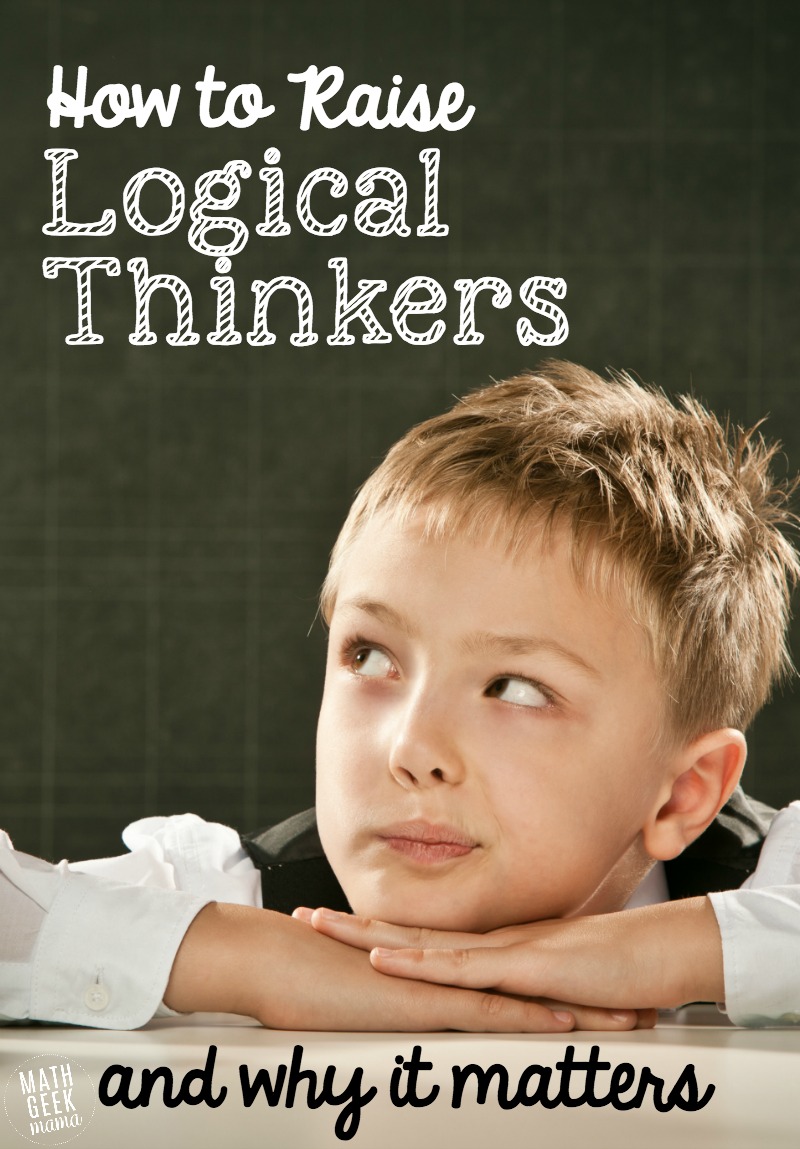
*Please Note: This post was sponsored by Grids for Kids Logic Books and contains affiliate links, but all thoughts and opinions are my own. Read our full disclosure policy here.*
Why Teach Kids Logical Reasoning:
1. It will provide them with critical thinking skills
When kids grow up and face real world problems, they will be better equipped to solve them if they have strong critical thinking and problem solving skills. They will be ready to think outside the box.
We should be teaching our kids to think for themselves, and not always accept everything they hear at face value.
Rather than facing a task that’s hard by immediately asking for help or assuming someone else will do it for them, they should be ready and prepared to tackle the problem themselves.
Related: The Importance of Logic and Critical Thinking
2. It’s good exercise for the brain
In addition to providing kids the necessary tools to function in life (and not drive their car into a lake), learning to apply logical reasoning through logic puzzles and brain teasers can stimulate the brain, as well as aid in memory and concentration.
Working through a challenging brain teaser or logic puzzle requires patience and concentration as the logic is teased out and the final solution verified.
Practice with these types of puzzles helps the brain make connections and get used to focused concentration on a single problem.
3. It will help in their math studies
Logic puzzles and brain teasers may seem like simply a fun way to pass the time, but I believe they will help your child be a more successful mathematician.
Math is logical. There’s no denying it. And yes, some kids are brilliant at memorizing facts in the early years. And they may do well in math for a time.
But at some point, they will no longer be able to simply regurgitate facts. They will have to use and apply logic to work out math problems successfully.
In a high school geometry class, there is a large emphasis on reasoning and proof. When writing a proof for any given geometry theorem, however, there is no “one size fits all” solution or algorithm. You have to understand the structure of proofs, and then you have to write out a solid mathematical argument for why it is in fact true.
And you simply can’t write a valid mathematical proof that is devoid of logical reasoning.
In Algebra, kids will be given countless real world examples of math and word problems which will all require logic to solve.
So if you’re feeling overwhelmed right now, don’t worry! I have some helpful and simple tips to share so that you can raise logical thinkers and problem solvers!
How to Teach Logical Reasoning:
1. Ask “Why?” frequently
Try to get your kids used to hearing the question, “Why?”
For instance, ask things like, “Why is the answer 15?” or “Why did you multiply in step 2?” Answering questions like this will help kids think through the logic they used to solve a problem or come to a certain conclusion.
They should be so used to having to justify their methods or their answers that when they go to solve a new problem, they think through the why on their own.
2. Play board games that encourage strategy and logical thinking
There are tons of fun games out there (beyond Sudoku or crosswords) that will help kids develop their logical reasoning skills.
Try Apples to Apples, Blokus, or Quirkle, just to name a few.
Or play with a Rubik’s Cube.
3. Use a structured approach
Another resource that my kids and I have loved is this set of Grids for Kids logic puzzle books. This set of books is specifically designed to teach kids logical reasoning, and progresses in a way that builds on what kids have already learned.
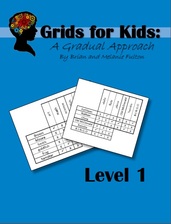 My daughter has been going through the first book now that we’re done with school for the summer, and she has really enjoyed the challenge.
My daughter has been going through the first book now that we’re done with school for the summer, and she has really enjoyed the challenge.
After completing the first two puzzles, she began to notice patterns in the problems and showed a greater confidence in her own ability to solve the next puzzle on her own.
And although I helped significantly with the first puzzle, she is determined to try to solve the rest of the puzzles on her own.
If you’re not familiar with this type of logic puzzle, you may find them challenging at first, but the books include 30 puzzles and worked examples with very detailed explanations of how the grids are completed and then logically solved.
I will note that while they suggest starting at age 8, my daughter is 7 and has been able to work through these puzzles with a little help from me.
One of the thing I did to help her was write out sentences with fill in the blanks to make sure she knew what she was trying to figure out once she had filled in the grid.
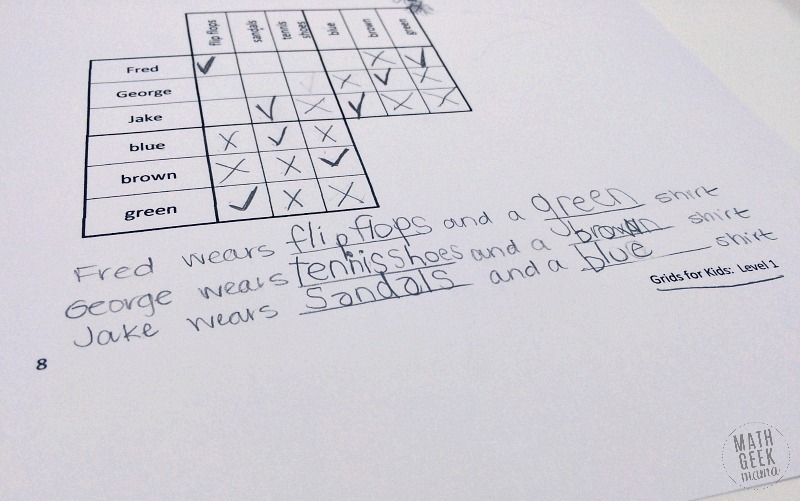
For instance, in Puzzle 1C, the goal is to determine who wears what type of shoe and what color shirt. So I would write out sentences such as, “Fred wears _____ and a _____ shirt.”
She then filled in the sentences on her own and we would check it together.
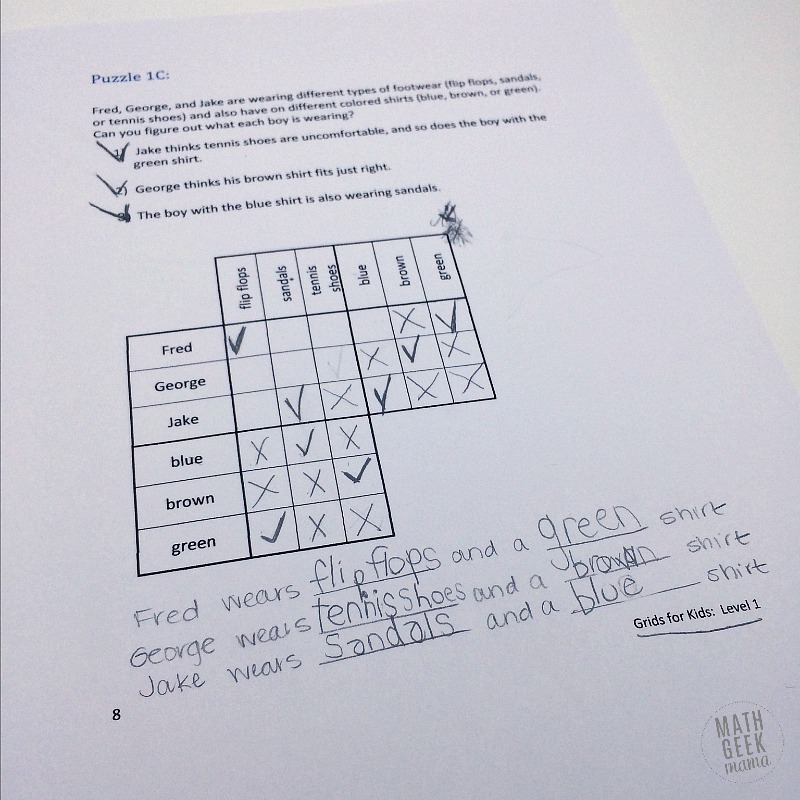
The creators of Grids for Kids shared the following,
“Our daughter loves puzzles and games of all types. We wanted to use this love of puzzles to develop her reasoning ability in a non-formal way. Obviously, her concentration is engaged when working the puzzles. But it has also helped her ability to pay attention to the little verbal “nuances” that can change a sentence’s meaning, or make it more exact.”
I think these puzzles would be great for kids who love brain teasers and puzzles, or gifted kids who are looking for a challenge, but I will also add that this is a fantastic tool for anyone wanting to strengthen logical reasoning skills in their kids or themselves.
The Grids for Kids books are written by fellow math geeks who are much smarter than I am. And they have put their knowledge of math and logic to great use by providing such a valuable resource for parents, teachers and homeschooling families! I highly encourage you to check them out!
Want more fun grid and sudoku puzzles for your kids? Check out these sets:
Buy Pattern Block Logic Puzzles | Buy A Year of Logic Puzzles
What do you think? What are some of your favorite ways to develop logical reasoning skills in your kids? Share in the comments!


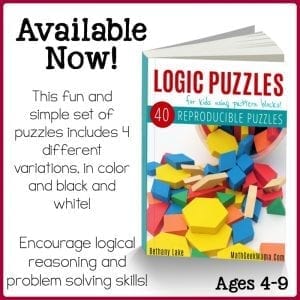
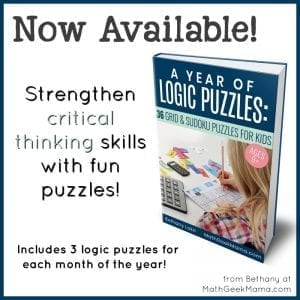
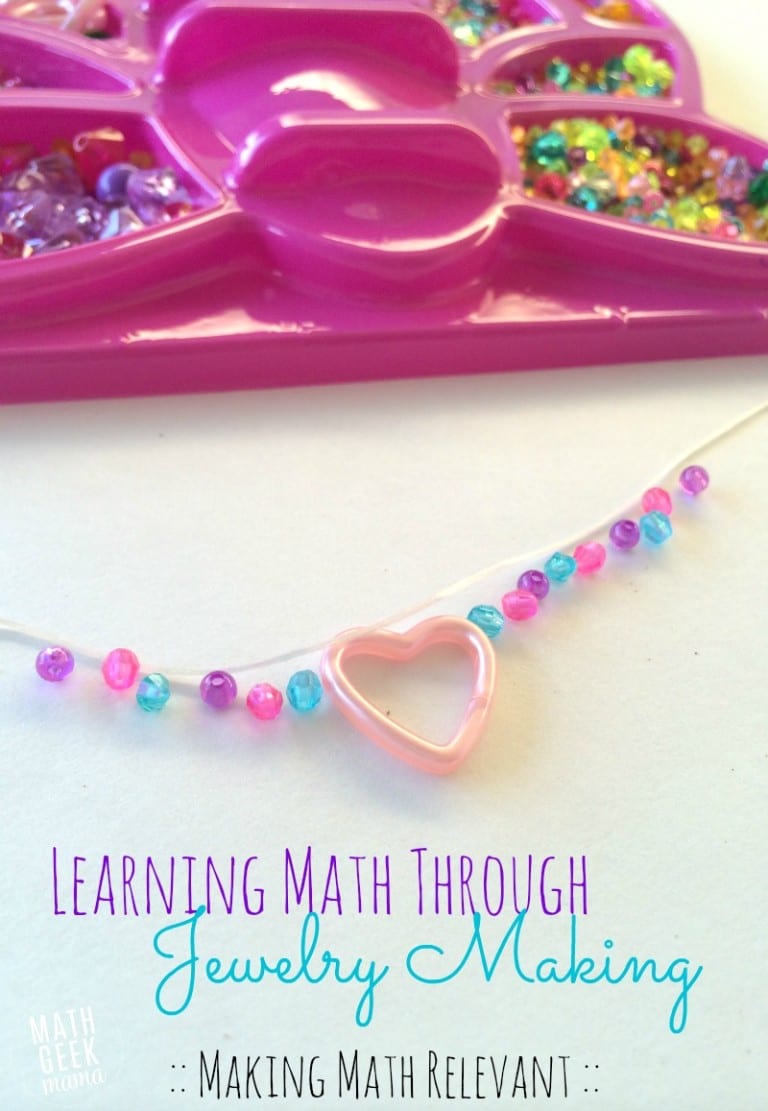
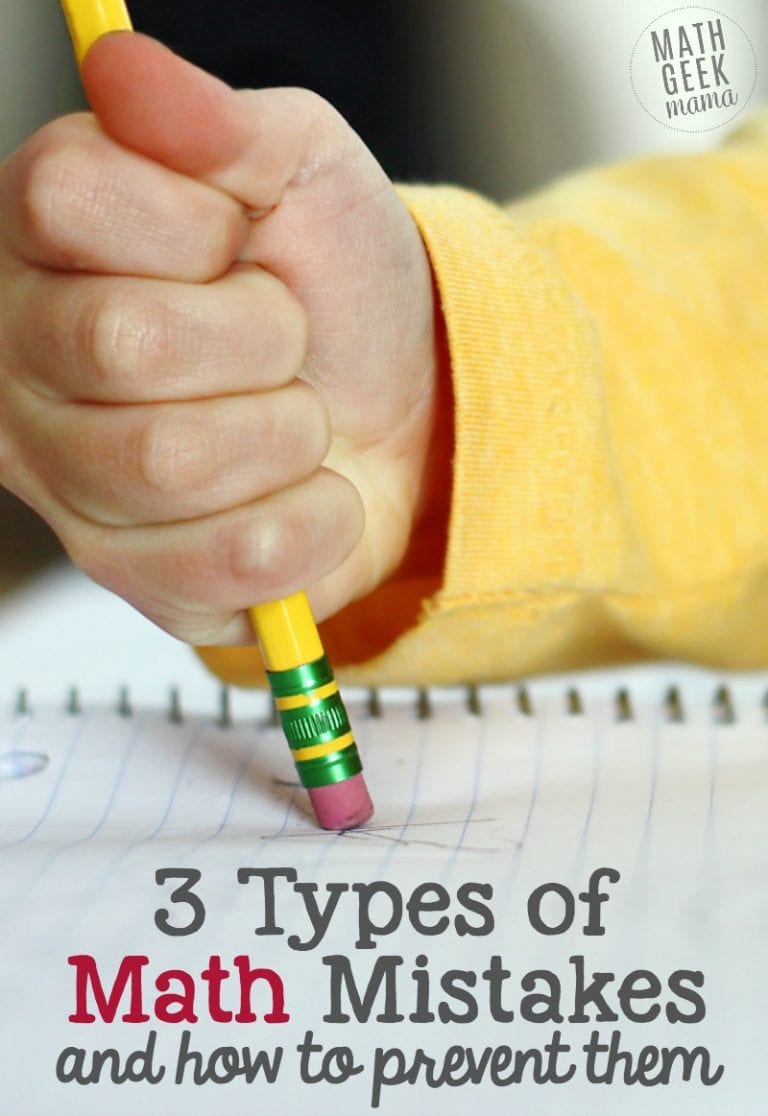
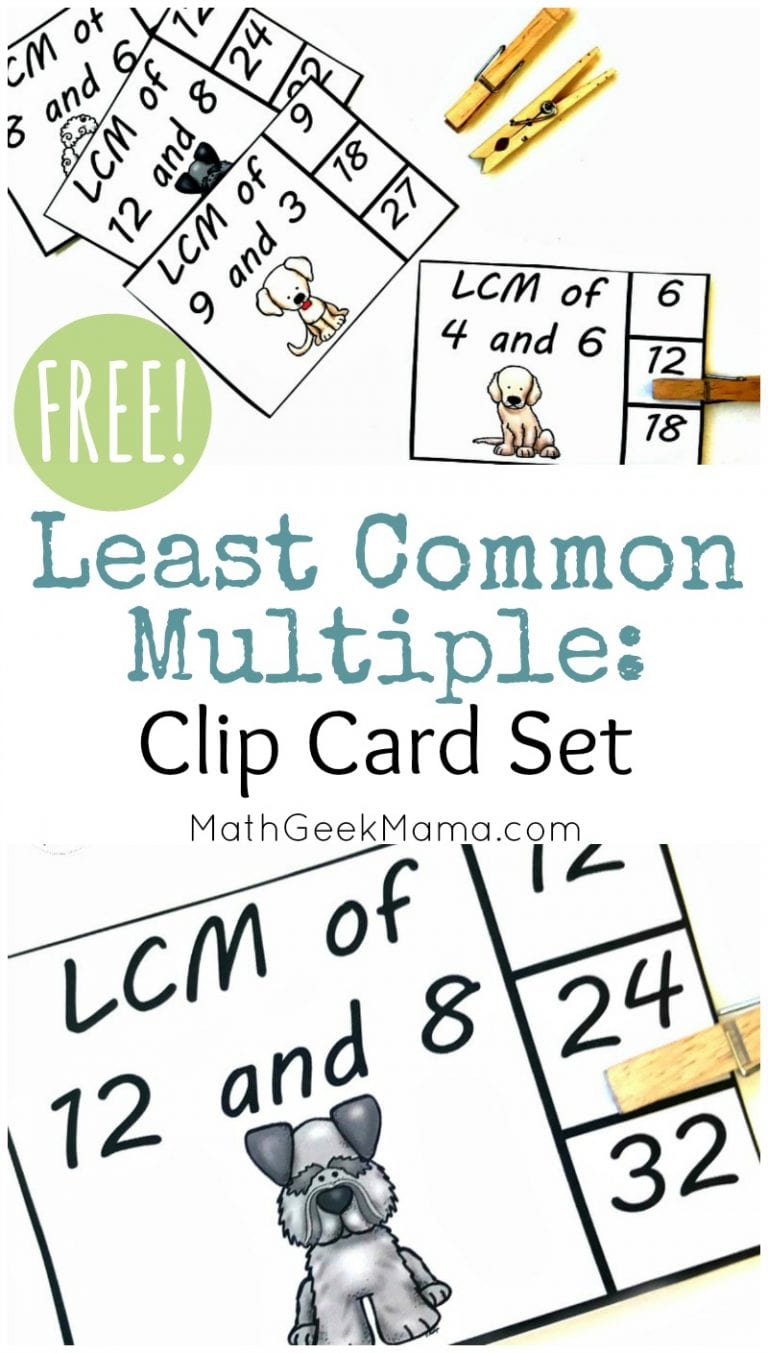
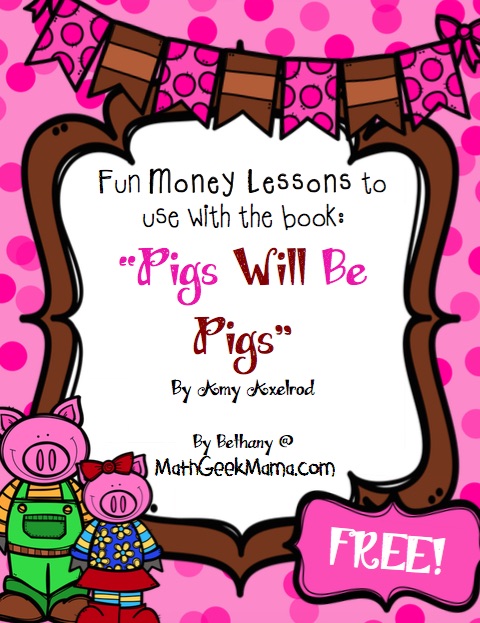
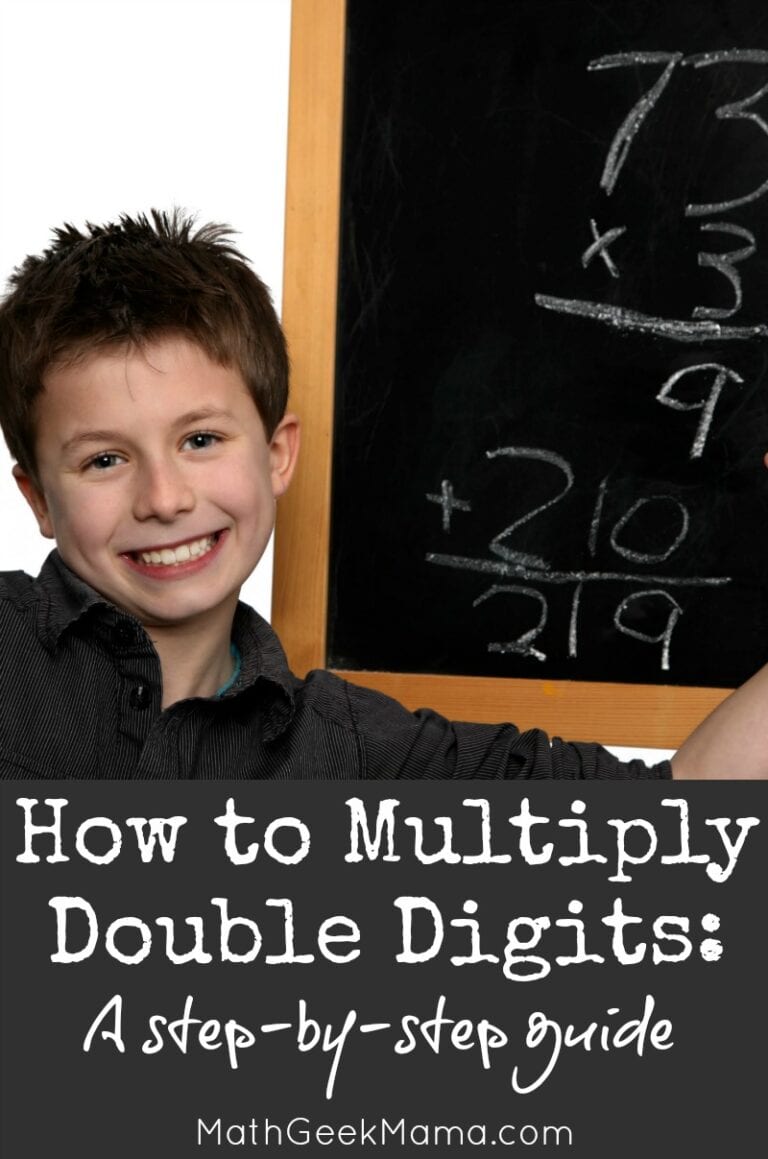
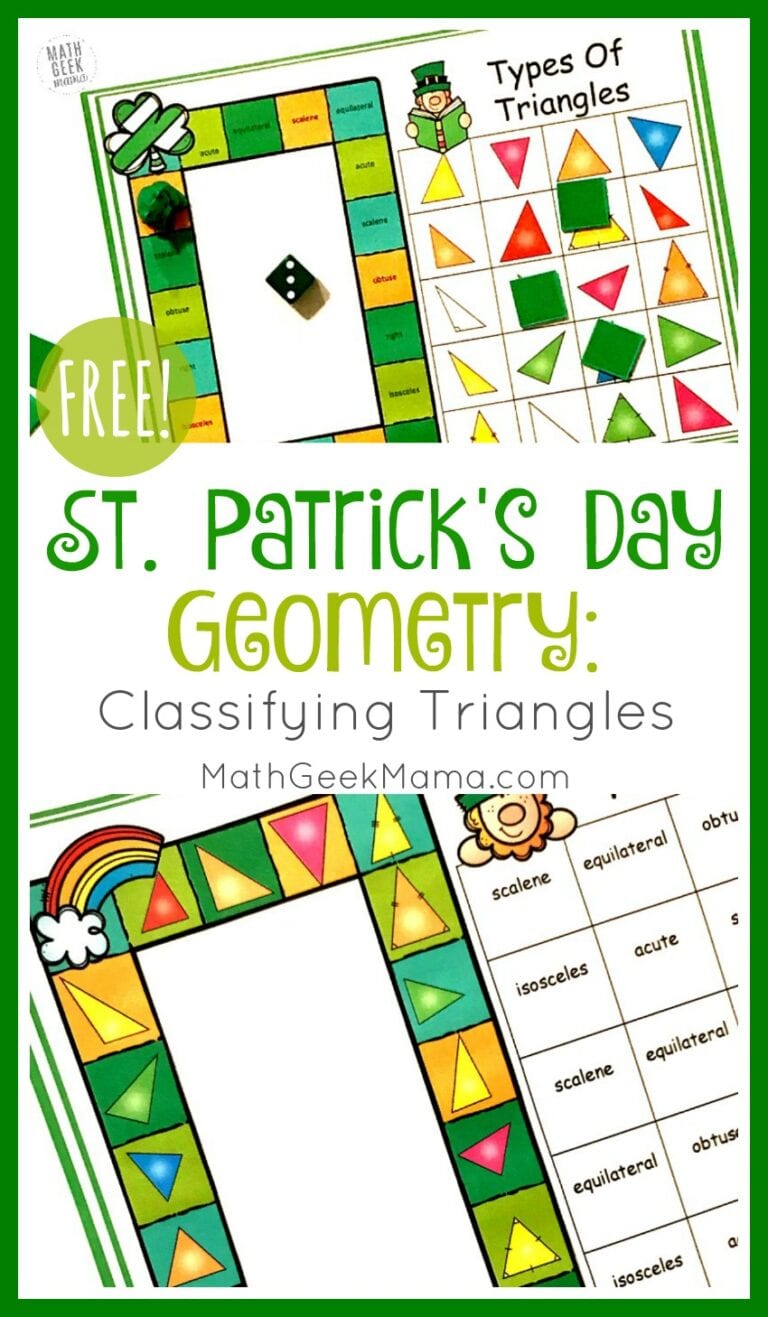
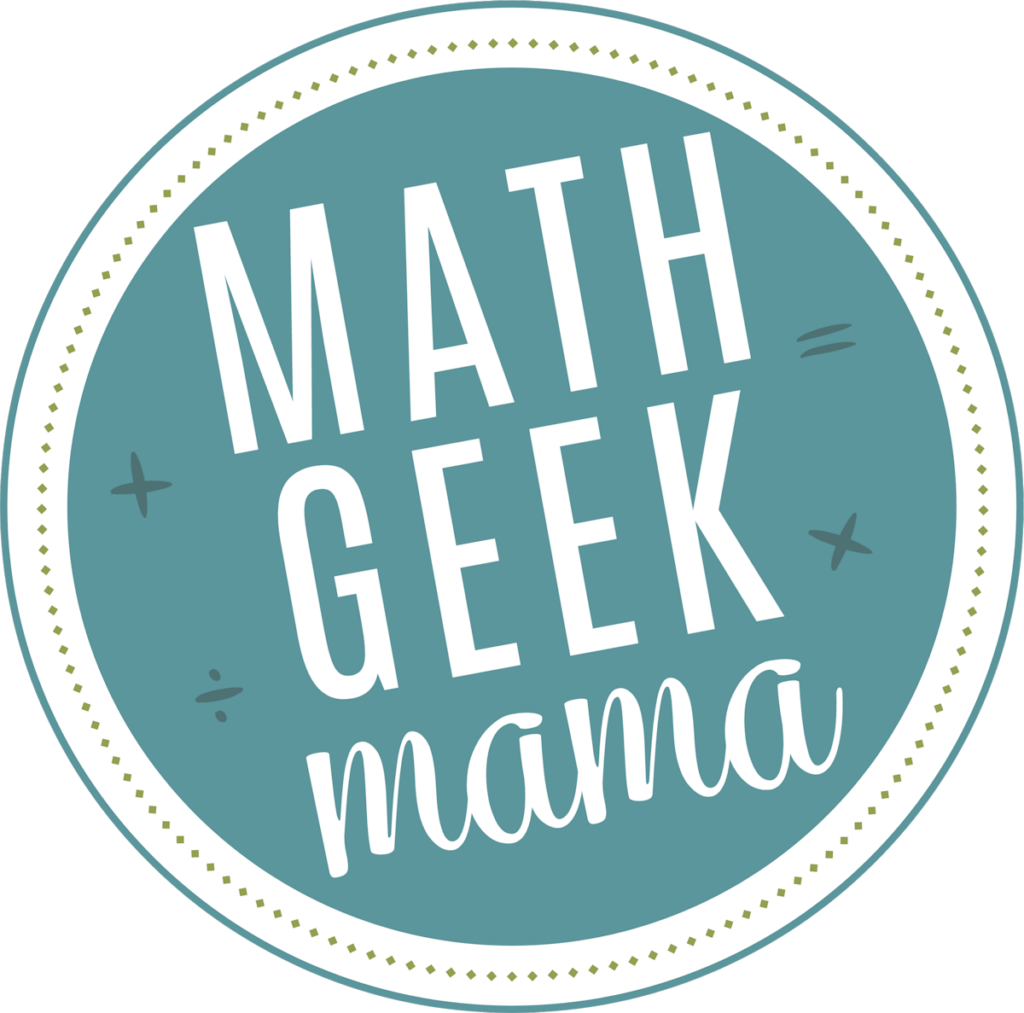
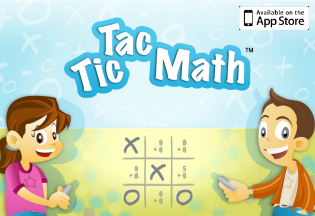


I used to LOVE those types of grids growing up!! My kids like them now, too. I love getting logic puzzle books for summer car rides. Keeps them engaged and quiet while they are learning!
Yes! We actually took them on vacation with us a few weeks ago-it’s a great activity for a long car ride! 🙂